Drawer Locking Router Bit
Strong, well-fit joints are the key to quality drawer construction. Those are the joints you'll get with our drawer lock router bit, and you'll get them with speed and efficiency. Minimum material thicknesses for the Drawer Lock Joint Router Bit are 3/4" for the drawer front and from 1/2" to 3/4"-thick for the sides. When making a box-type drawer use the same thickness material for the rear face as used for the front.
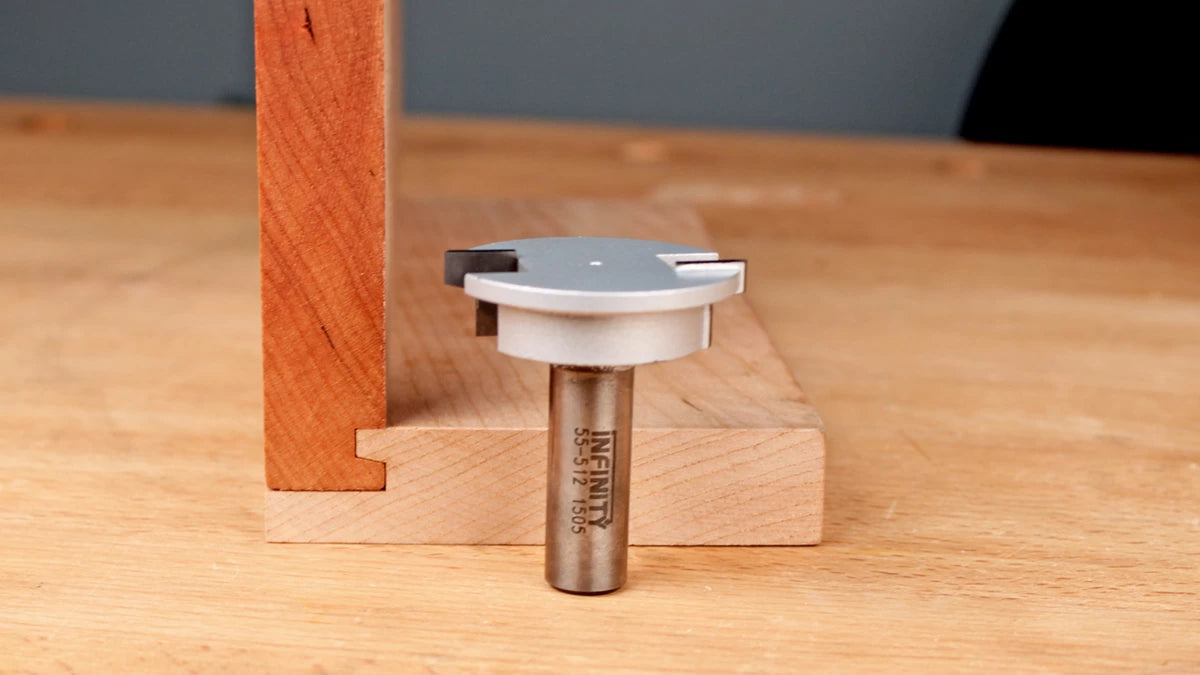
When is the last time someone said to you "nice drawers"? If it's been a while, it's time to step up your game in the woodshop. When my goal is to make a strong and visually appealing joint quickly, I reach for the Drawer Locking Router Bit. The Drawer Locking Router Bit creates a strong interlocking joint with plenty of glue surface that only requires clamping in one direction during final assembly. The joint is also perfectly suited to be pin-nailed, allowing you to free up your clamps when making multiple drawers. New kitchen cabinets, anyone?
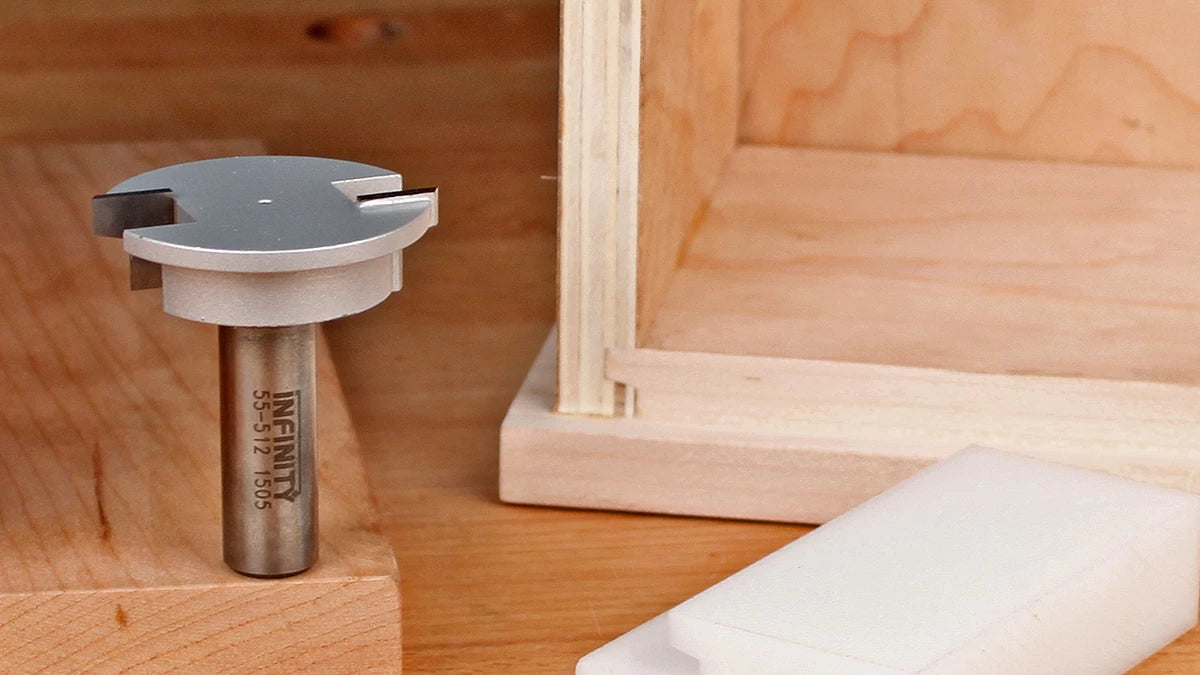
The Drawer Locking Router Bit creates an Interlocking joint that pulls both pieces of material together as clamping force is applied from the side. This geometric configuration means you don't need to put any clamps on your drawer face, which has the added bonus of saving you from putting pressure marks on the face of your drawer.
Another nice feature of the Drawer Locking Router Bit is that the joint can be pinned from the side with a brad nailer, allowing the clamps to be immediately removed so they can be used on the next drawer in quick fashion.
The Drawer Lock router bit will also allow you to create full overlay drawer fronts without using two pieces of material for the drawer face. This is a recipe for a cleaner, more visually appealing drawer.
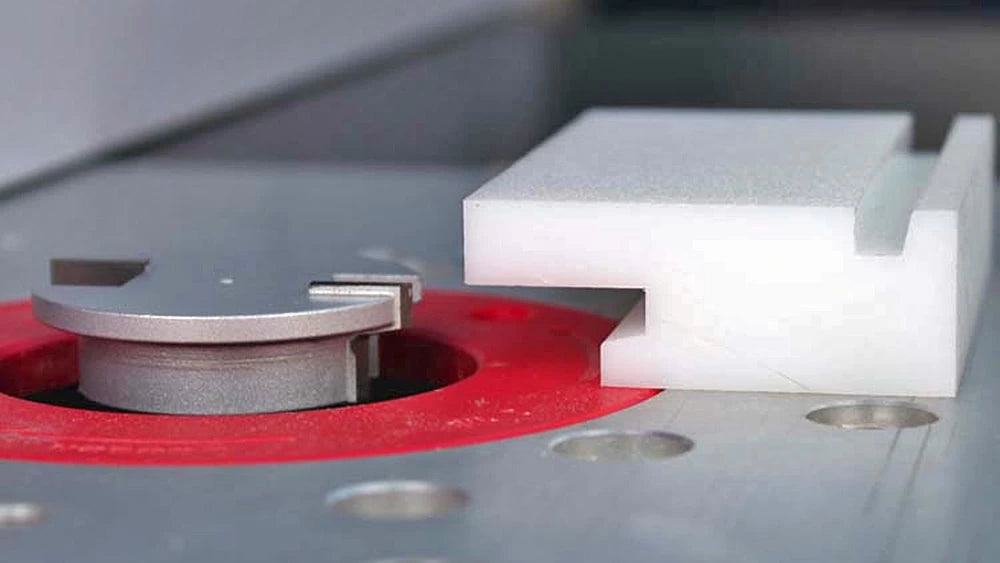
Infinity Cutting Tools also offers a setup block specifically for the Drawer Locking Router Bit. When it comes to material thicknesses, this block is designed to pull double duty. First, the block will help set bit height and fence setting when making drawers with 3/4" faces, 1/2" sides and with a 1/4" overlay. Second, the same block will set the bit height and fence to create a drawer with a face flush to the sides when using all 3/4" material for the box.
If you want to make drawers with different overlay or from material of different thicknesses you can still use the setup block to set the bit height and the fence setting for the drawer sides, leaving only the adjustment for the drawer face to be made via the fence setting. To add a greater amount of overlay, you'd simply move the fence away from the front of the table when cutting the drawer front. For a lesser amount of overlay, simply move the fence forward toward the front of the table when cutting the drawer front. It's as simple as that.
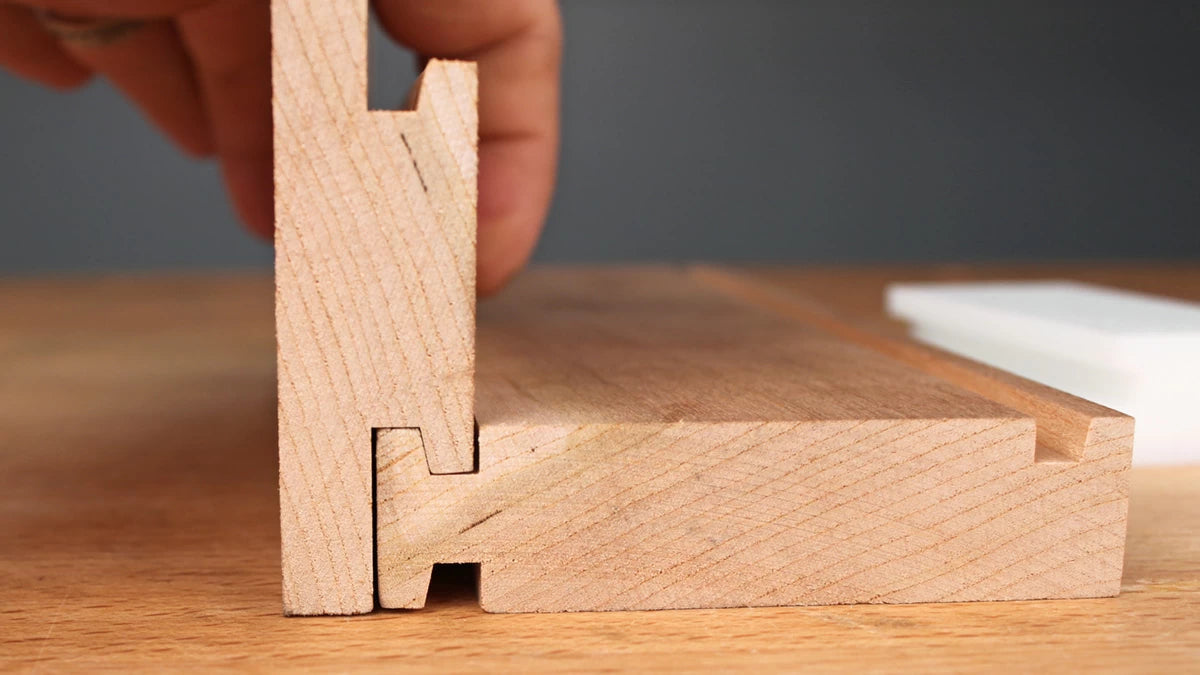
If for some reason the joint is not fitting together perfectly or you want a slightly tighter or looser fitting joint, the Drawer Locking Router Bit is easy to fine tune. If the joint is loose it means the bit is set too low. Simply raise the bit half the amount that is needed to tighten the gap, this will tighten up the joint. If the joint is too tight the bit is set too high. Lowering the bit will loosen the joint up. Remember any adjustment made to the bit height will be doubled when both pieces are cut.
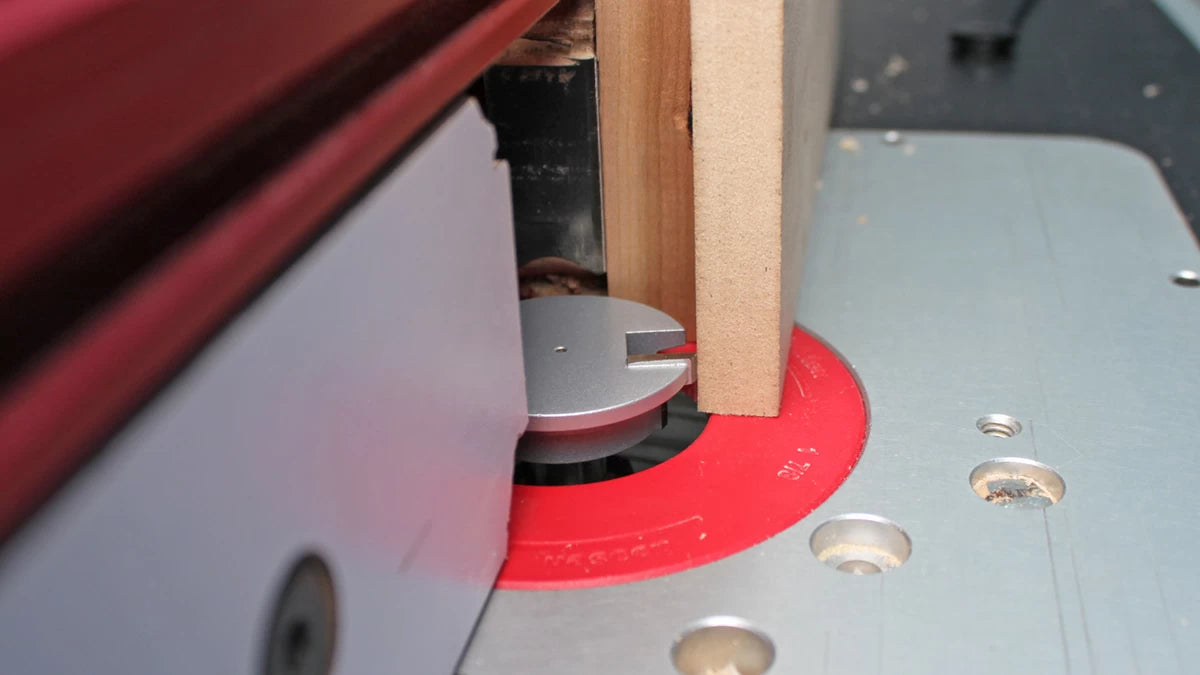
If the drawer overlap is not lining up or a custom overlay is desired, all that is needed is a fence adjustment. A quick way to set your overlay is to use a piece of your drawer side material as a guide. Set your drawer side against your fence, then stack a second piece in front and simply set the fence to allow the bit to project the same mount as the side material thickness. This will set the bit perfectly for a flush face/side joint. If you want an overlay of say, 1/2", simply add a piece of 1/2" material to the stack and move the fence back accordingly and you are set.
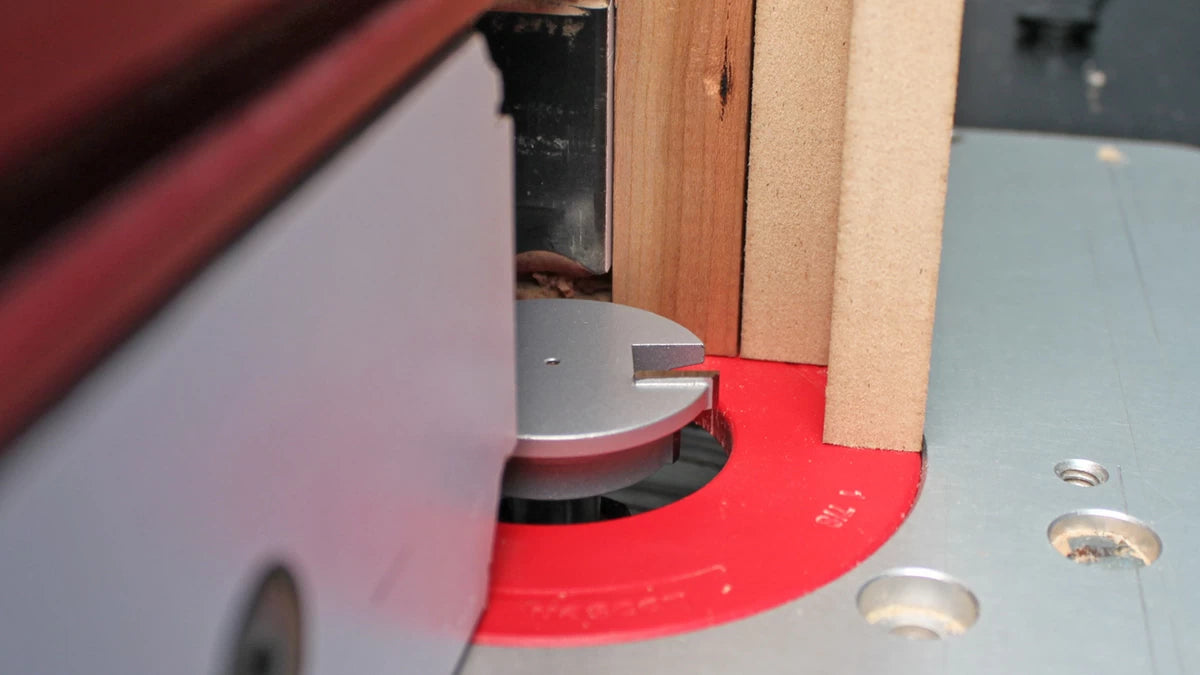
The Drawer Locking Router Bit simplifies drawer construction by eliminating finicky jigs and time-consuming setup. What is left is a strong, attractive and versatile joint that is easy to make, fine-tune and assemble. Adding a Drawer Locking router bit to your collection is sure to simplify your next drawer-making project. And don't forget the drawer locking router bit setup block, it'll make an already easy-to-use bit even easier.

